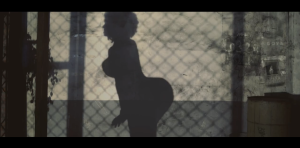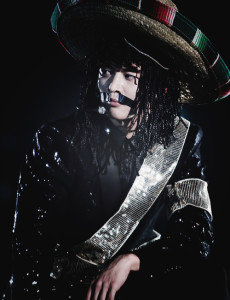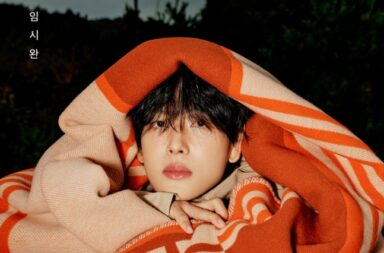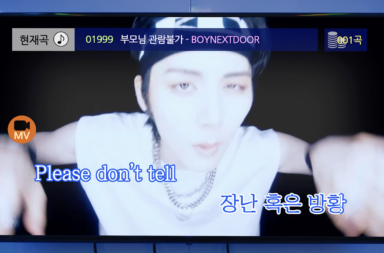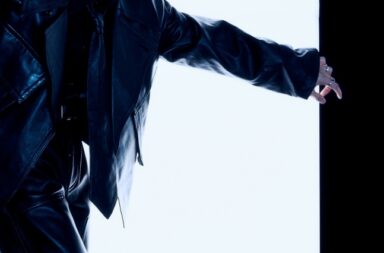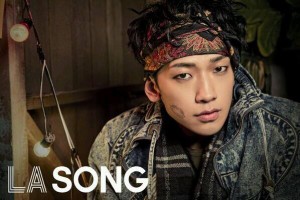 I have a distinct memory of an incident that occurred when I was about thirteen. I was in the cafeteria at lunchtime with my friends, and being the introverted kid that I was, I just sat back and listened to them talk. Two of my friends started messing around and picking on each other because, you know, they’re friends. They’re allowed to insult each other because it’s all a joke, right?
I have a distinct memory of an incident that occurred when I was about thirteen. I was in the cafeteria at lunchtime with my friends, and being the introverted kid that I was, I just sat back and listened to them talk. Two of my friends started messing around and picking on each other because, you know, they’re friends. They’re allowed to insult each other because it’s all a joke, right?
They go back and forth and tease each other, laughing and trying to one up each another. Finally, right before getting up to return her plate, one says, “Well, at least my face isn’t all gross and pimply.” My other friend fell silent. His entire expression dropped, and he didn’t say anything. It was obvious that she’d unintentionally struck a nerve. As we sat there in silence, her gone without realizing the effect of her comment, I felt compelled to finally speak and ask if he was okay. He said in a soft voice that at his old school he had been bullied because of his acne. I nodded in understanding, and when my friend came back, she noticed the silence and was confused. I explained to her the situation, and even though it took her a bit to understand why it hurt him, she apologized.
So what does this have to do with racism in K-pop? Well, this isn’t an exact equivalence to what people of color have suffered. Even though my friend’s pain was real, people who have acne are not at all institutionally oppressed. The truth is this anecdote barely scratches the surface of the type of suffering people of color undergo for their whole lives. And the sad thing is idols occasionally do or say things that are offensive and racist and contribute to that suffering. A recent example would be Rain‘s music video for “L.A. Song.” Featuring a woman whose breasts and posterior enlarge after a rather aggressive kiss from the singer, the video doesn’t exactly portray black women in a positive light. In fact, one could say it perpetuates the stereotype that black women are inherently hypersexual beings.
Rain was likely not trying to do so though. He was actually probably trying to show his interest in black culture, especially with his inclusion of the other black woman doing a native dance, along with other cultural symbols. However, one cannot deny that even if the intention was to respect black culture, there were people offended by the music video and especially the opening scene. Of course, not everyone has taken this to heart — some black viewers may not have had a problem with it or even made that connection, but should that invalidate those who were offended just because they weren’t?
Let’s go back to the memory I’d mentioned earlier when my friend made a joke about my other friend’s complexion. As a fellow sufferer of acne, I could understand his plight more easily than our friend who had been genetically gifted with lovely, clear skin and thus had difficulty understanding the hurt of her words. However, while I could understand his pain, I was not at all upset by her words because I had never been bullied because of my skin. So when he explained his pain, I could easily have told him, “Look, I have acne, and it didn’t bother me. Plus, she obviously didn’t mean to hurt your feelings. She’s your friend! You really need to get over yourself and learn to take a joke.” I could have just disregarded and invalidated his feelings, but even if I wasn’t hurt by our friend’s words, that didn’t mean that he wasn’t hurt. Instead of being selfish and refusing to understand, I put his feelings before mine and empathized with him. My lack of comprehension wouldn’t have changed the fact that those words were insults right from the beginning, even if they were framed in the context of a joke.
The same could be said for the issue with Rain’s music video and other examples of racism in K-pop. Even if Rain was trying to be respectful and appreciative of black culture, his portrayal of a black woman was offensive. We can couch it in any context, even one that is well-meaning, but that doesn’t change the racist stereotype he perpetuated. Should we get inflamed and decide that those who were offended are not allowed to feel the way they do just because some other people weren’t offended? Should we tell them they are being ridiculous, stupid or too sensitive?
Let’s take a look at another example. At the end of last year during SMTOWN Week, Shinee members Onew and Minho did a performance of the 1995 Spanish hit “Macarena.” The song choice in and of itself was nothing bad. It’s a song that was huge and remains a staple at many (lame) parties today. What made their performance offensive was their choice of stage costumes.
[youtube http://youtu.be/doLiO1pSRgM]There’s no denying that their costumes are akin to the stereotypical portrayal of the outfits of Mexican people — sombreros and all — albeit in a more heavily glittered and glammed up kind of way that’s befitting of a Shinee performance. Nevertheless, the similarities are undeniable and inexcusable. Why is it a problem? They were obviously joking around and having fun. But good intentions don’t excuse anyone.
As previously mentioned, “Macarena” is a song by a Spanish, specifically Andalusian, pop duo named Los del Rio. And nowhere in the song is there a reference to Mexico that we might use to “rationalize” their choice. No, their choice stems from the common but false stereotype that all Hispanic culture is one giant lump of the same thing — that if you put your hand in the figurative bag of Hispanic people, no matter who you pull out, they’ll all be the same. But Hispanic culture is not as limited as the media’s racist stereotypes perpetuate, and unfortunately Onew and Minho play into that with their performance.
Their performance actually reminded me of the many times my Hispanic identity had been equated to being Mexican because, you know, Hispanic = Mexican. For instance, once when I was in high school, the son of a close family friend asked me if I was Mexican. I kindly corrected him and said that I was actually Ecuadorian, and he quickly shot back, “But aren’t they the same?” Before I could explain that there was a big difference, his mom jumped in and said, “Not really, but it doesn’t matter.” And I just sat there, slack-jawed and hurt. My identity was not only lost among the nonentity that many believe Hispanic culture to be, but it was also unimportant.
However, back to Shinee’s portrayal, not all Hispanic fans were offended. Many found their performance enjoyable and saw it as pure entertainment, which is totally fine. No one is going to revoke their Hispanic identity card. Anyone can enjoy something problematic as long as they recognize the problem and know that it’s offensive. If they don’t, then they can easily assume themselves spokespeople and decide what is offensive. One might say, “I, as a Mexican fan, was not at all offended by Onew and Minho’s performance so it’s obviously not racist.” And they may think that they are just being lighthearted and accepting of their biases’ mistakes because they know it wasn’t their intention. But 20th century philosopher and writer Albert Camus said in The Plague, “Good intentions may do as much harm as malevolence,” and those words ring true even in the context of K-pop and any other entertainment.
Now, this isn’t to say that Onew and Minho are bad people. In fact, their good intentions mean that they are probably actually good people who just happened to make a mistake, a racist or culturally insensitive one, but a mistake nonetheless. And when someone makes a mistake out of ignorance, the proper response is to educate them so they don’t repeat the mistake. So pointing out that an artist has said or done something offensive is not vilifying them, and that’s the thing that so many people in the K-pop fandom fail to realize. It’s simply a reminder that they are human beings who can always afford to learn more.
The crossfires among netizens — on how situations as in the aforementioned should be read — can be polarizing and thus label even the most loyal fans as antis. But we can’t let such outcomes hold us back from blowing the whistle on a problem. If we do, then we’re not only halting progress but also condoning problematic actions. Besides, if Onew, Minho, Rain, or any other artists are actually good people with good intentions as fans often preach as the excuse, won’t they take it in stride, apologize and learn from their mistakes? It’s our job as fans, especially international fans, to support artists not only with cheers and accolades but also with constructive criticism and the truth. It’s the only way they will grow as artists and become better people.
(YouTube)
